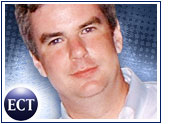
These are indeed tumultuous times, particularly with international and local political conflicts shaping what appears to be a turning point in U.S. history. Clearly, technology is helping to define these changes at the global level, especially with third-world countries coming online every day and technology transforming the way first-world countries communicate and interoperate. But in discussions about technology in the IT press, ethical questions about technology’s role are often sidelined or folded into questions about technology’s benefits from the perspective of efficiency, information handling or processing power.
If the role of religion, organized or not, is to meet human need on a social or community level, then surely technology — which arguably has transformed the way groups of people communicate — has a role in religion. According to the Episcopal Church’s Tom Ferguson, religion not only has a distinct role in technology, but technology also can be vital in shaping religious communities and helping churches of different denominations and geographical locations to share information and set religious policy.
Ferguson holds a PhD in theology and church history from the Graduate Theological Union in Berkeley and has a Masters in Divinity from Yale and a Masters of Theology from a Greek Orthodox Seminary. As the associate director for ecumenical and interfaith relations at the Episcopal Church, he is in a unique position to comment on how religion through the years has used technology — broadly defined as any kind of communications tool — to shape communities.
In his role in the office of interfaith relations, he has access to demographic details about what he characterizes as a new kind of digital divide. In an exclusive interview with TechNewsWorld, Ferguson talked about the future of religion and technology — and what he views as their joint role in the survival of humanity.
TechNewsWorld: For starters, do you think technology — or, more specifically, information technology — has any kind of spiritual element or component?
Tom Ferguson: Absolutely. Information technology is about expanding the parameters of what is possible, and about finding new and different ways to communicate thoughts and ideas. What can be more spiritual than that? Most of spirituality is just people searching for meaning and then finding ways to express that meaning.
TNW: Does technology need to “get religion”?
Ferguson: Technology doesn’t have a say in the matter, really. Religion will get it whether it likes it or not. Always has. Religion has traditionally been one of the first elements of society to embrace technological advances, from moveable type to radio to online ordinations through the Internet.
TNW: What do you think technology’s most important contribution to religion has been?
Ferguson: I heard somewhere the two most common Web sites are porn and religious ones. Obviously, porn as number one was not surprising, but religion as number two was. That should be telling us something. People want their porn without going to seedy theaters and getting it in brown paper packages. People crave religion and spirituality without having it crammed down their throats in church. Anonymity and having the user be the one in charge have driven the online porn and spirituality engines. Technology has allowed thousands — if not millions — of people to begin to develop spirituality outside of the traditional power structures.
TNW: Conversely, what about religion’s most important contribution to technology?
Ferguson: Historically, I would say religion helped create what is now our mass-market information society. Early on, Christians moved from the scroll to the codex or book form. Books lasted longer, were easier to carry, and you could skip around a book the way you can’t in a scroll. Boom! Suddenly information is portable and easily referenced with page numbers.
Combine the development of the book form with moveable type, and you have something that in the 16th century was as much of a revolution as the Internet has been. Books were no longer prohibitively expensive, no longer took a long time to produce and no longer were in Latin, which most people didn’t understand.
If Martin Luther had not been able to have his tracts mass-produced and distributed, he’d have been another of countless people burned at the stake. No advances in information technology, no Reformation. Religion is not embracing the information revolution; it’s reaping what it sowed hundreds of years ago. Religion created the information revolution that has been ongoing.
TNW: How is the Episcopal Church using technology today?
Ferguson: I think it’s incredibly underutilized. The two most common areas are in training for clergy and for institutions to make their information available. Wow. I no longer have to call a church to find out what time its services are. Wow. I no longer need to photocopy a text. I can print it out online. Color me underwhelmed.
TNW: What about your community of users — rather, believers? Are Episcopalians wired?
Ferguson: There’s an incredible digital divide in religion. The Episcopal Church recently redid its Web site, and lots of our rural congregations — and we have hundreds of them in places like Alaska and Wyoming — simply don’t have the connection speed at this point to load the front page.
TNW: How do you think religion is being affected by communications technology not being accessible to everyone?
Ferguson: It has the potential to lead to stratification in the churches along ethnic, regional and economic lines. A scholar of American religion has said that Sunday morning is the last segregated aspect of society. It runs the danger of having wired, mostly affluent, mostly white, mostly urban churches largely on the two coasts and the rest in varying degrees of wiredness.
TNW: It seems you’re running episcopalchurch.org on Red Hat and Apache. It looks like you moved from Microsoft’s IIS in August 2002 to Linux. Has the Episcopal Church gone open source? Is there any official church IT policy?
Ferguson: We did a major overhaul this last summer. We do have an official IT policy, and it’s to gear all online stuff to inquirers — people not familiar with the church. The old Web site was basically for people in the know to find information they needed. So we’re in the initial stages of articulating a theology of information technology — not to sound too pretentious — to move from information delivery to evangelism. Less annoying than having people knock on your door and give out tracts.
TNW: You travel quite a bit around the country to conferences, board meetings and so forth. But videoconferencing technology is widely available, so why is this kind of travel still necessary? Has the church not yet embraced some of these technologies wholeheartedly?
Ferguson: Don’t get me started. So much of any religion is based on community; almost every major faith tradition, both Western and Eastern, is about a philosophy lived out in relationship with other people. There’s tremendous fear in some parts that information technology will threaten what many see as a foundation of religion. It’s one reason, I think, for the incredible reluctance to really explore the implications of videoconferencing, especially in theological education.
TNW: Are there opportunities for using technology in the church — or between churches — that the church is not using but would enhance communication?
Ferguson: We’ve got an essentially monastic model of clergy education that is about a thousand years old. Someone is plucked from their community, goes off to seminary for three years where they are instructed in a fairly small community, then after graduation is ordained and sent off to a third place to work in their first parish. This no longer makes sense. Although it works for a lot of people, it doesn’t work for everyone, and the paradigm has to change. Seminaries have been some of the slowest groups to embrace developments in information technology.
TNW: There is clearly a darker side to technology — as evidenced by the dangers that technology sometimes exposes. For example, the space shuttle Challenger disaster and even the September 11th tragedy could not have happened without 20th-century advances in aviation technology. There’s also a darker side of the Internet, like child pornography, credit card thievery and so forth. Does the Episcopal Church embrace technology wholeheartedly? Or is there some kind of doctrinal ambivalence?
Ferguson: The Hebrew scriptures speak of loving god with all your heart and your neighbor as yourself; other religions speak of an interdependent web of human existence. How do you cyber-love your neighbor? Will religion just become a casual click on a mouse? Where is the transformation and commitment? Those, I think, are some people’s fears. But, like I said, religion has to embrace technology or die. People thought no one would be able to handle the fact that the world revolved around the Sun.
TNW: Where do you think technology and religion will be in 10 years? Or in 20?
Ferguson: We will no longer see centralized church structures. The national headquarters of the Episcopal Church — our Vatican, so to speak — is in New York. I live in Los Angeles and work for the New York office. While this is common most everyplace and is a no-brainer to most people reading this, it’s taken the church a long time to fully embrace telecommuting. There’s so much in religion that needs a home, a center — a Vatican, Jerusalem, a Mecca, a Ganges River. This is going to be broken down in coming years. The definition of place and center will have to be reimagined.
TNW: How do you explain the concept — or even the believability — of god in the context of a digital world, in terms of cause-and-effect science and the general consensus among the technology community that the concept of god is untestable voodoo?
Ferguson: Of course god is untestable voodoo. And that’s what most non-IT people think of IT. Ever try to explain to your grandfather how to open an e-mail attachment? But IT folks know IT isn’t voodoo, just like I know god isn’t.

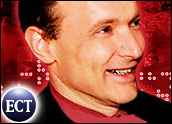
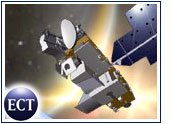
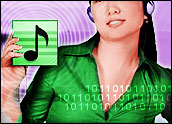
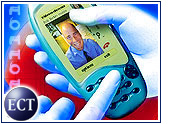

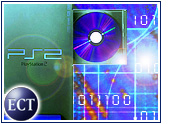
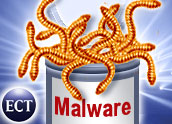


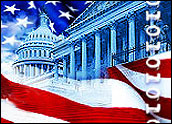











































I enjoyed reading this article, I think its a very interesting discussion. My profession is assistant technical director at a large non-denominational church outside DC. I agree there are many benefits and benefits that we, meaning the church, can fully benefit from.
I found the statement, "Religion has to embrace technology or die" interesting however. I wish I could better understand the context behind the author’s statement. The interview was short, and the statement felt hyperbolic. In any case, from what I gathered it raises some questions for me.
The statement is a short answer to a question that was not asked, "What is necessary for the further development and survival of religion?" And according to what I’m hearing, the answer is undoubtedly technology. For me, that begs the question, "What does religion itself say(and if I can be more specific Christianity because Dr Ferguson is Episcopalian) about what is necessary for its survival, continuance, and effectiveness, irrespective of generational barriers or technological accommodation?"
Any thoughts?